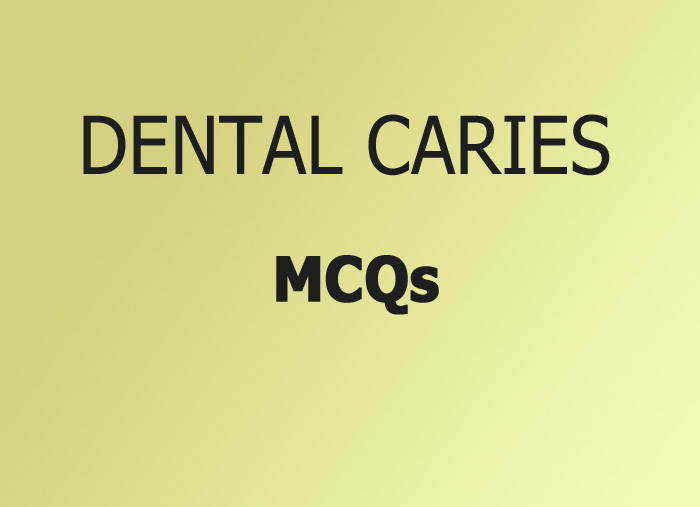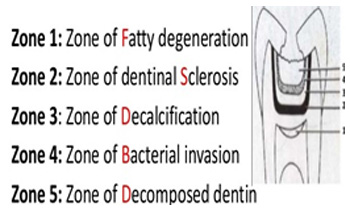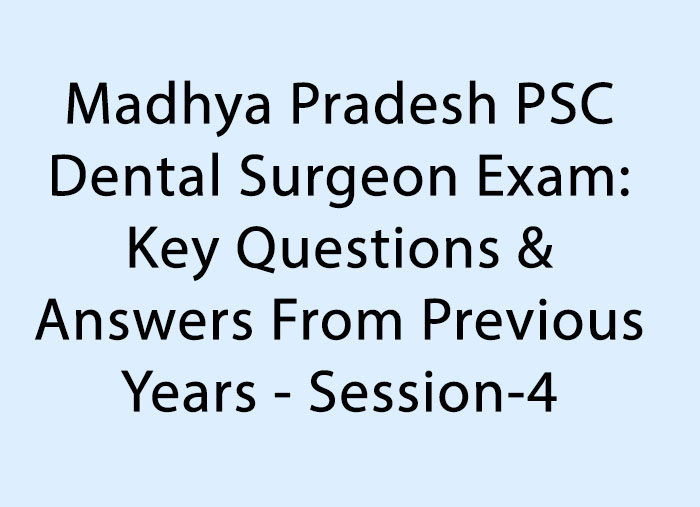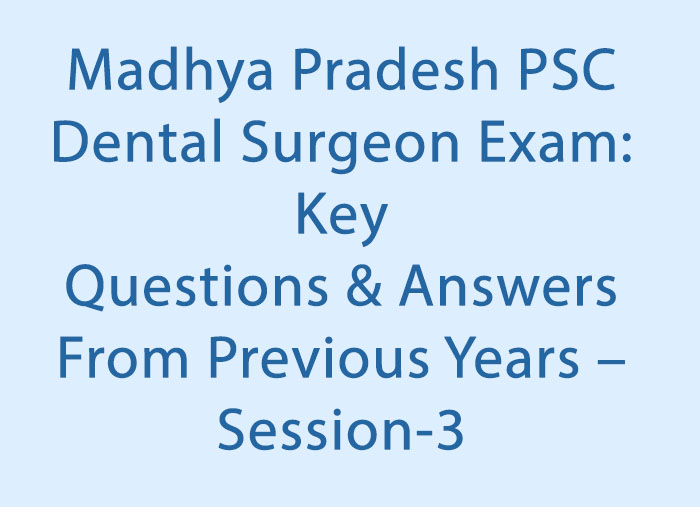- NEED HELP? CALL US NOW
- +919995411505
- [email protected]

a) Selenium
b) Vanadium
c) Strontium
d) Molybdenum
2. Widely accepted theory of dental caries
a) Proteolytic theory
b) Proteolytic chelation theory
c) Acidogenic theory
d) Autoimmune theory
3. Early invading bacteria in carious lesions are called
a) Microcosm
b) Pioneer bacteria
c) Advancing bacteria
d) Anaerobic bacteria
4. Bacteria free zone of dentinal caries is
a) Zone of decomposed dentin
b) Zone of bacterial invasion
c) Zone of decalcification
d) Zone of dentinal sclerosis
5. Pioneer bacteria in dental caries are in
a) Enamel
b) Dentin
c) Pulp
d) Cementum
6. Linear enamel caries lesions in deciduous teeth predominate in
a) Maxillary anterior teeth
b) Maxillary posterior teeth
c) Mandibular posterior teeth
d) Mandibular anterior teeth
7. From the list of oral microorganisms, which is primarily responsible for the initiation of dental caries?
a) Mutans streptococci
b) Bifidobacteria
c) Lactobacilli
d) P. gingivalis
8. Oral bacterial synthesise extracellular glucans (dextran and mutan) from which host dietary component?
a) Glucose
b) Alpha limit dextrins
c) Sucrose
d) Polysaccharides
9. A deficiency of which vitamin has been associated with enamel defects and increased risk of dental caries?
a) Vitamin A
b) Folic acid
c) Vitamin C
d) Vitamin D
10. The best available evidence for an association between amount of sugars and risk of dental caries comes from which type of study design
a) Randomised controlled
b) Non-randomised controlled
c) Cross sectional observational
d) Cohort
Answers with explanation
1. A
Cariostatic elements: F, P
Mildly cariostatic Mo, V, Cu, Sr, B, Li, Au
Doubtful: Be, Co, Mn, Sn, Zn, Br, I
Caries inert: Ba, Al, Ni, Fe, Pd, Ti
Caries promoting: Se, Mg, Cd, Pt, Pb, Si
2. C
Acidogenic theory was proposed by miller. According to this, initial decalcification of enamel and dentin followed by dissolution of softened residue.
3. B
Pioneer bacteria or primary bacteria are streptococcus mutans, lactobacillus and Actinomyces species
4. D

5. B
6. A
7. A
Mutans Streptococci initiate the dental caries process and other bacteria such as lactobacilli become involved at a later state when the plaque pH is lower. P.gingivalis is a bacterium that causes gingival inflammation. Bifidobacteria can metabolise dietary sugars to acids and contribute to dental caries, but these bacteria are not responsible for initiating caries.
8. C
Plaque glucans are synthesised from dietary sucrose by glucosyltransferase
9. D
Vitamin D: a deficiency is a risk factor for enamel hypoplasia and this increases risk of caries. Although there are limitations with some studies a systematic review has suggested that vitamin D supplementation may decrease risk of dental caries.
10. D
In the absence of any randomised controlled trials investigating sugars and dental caries the best available data come from cohort studies. Cross sectional observational studies provide weaker data as they only measure sugars and caries at one point in time and do not provide evidence on the association between sugars and development of dental caries over time.




